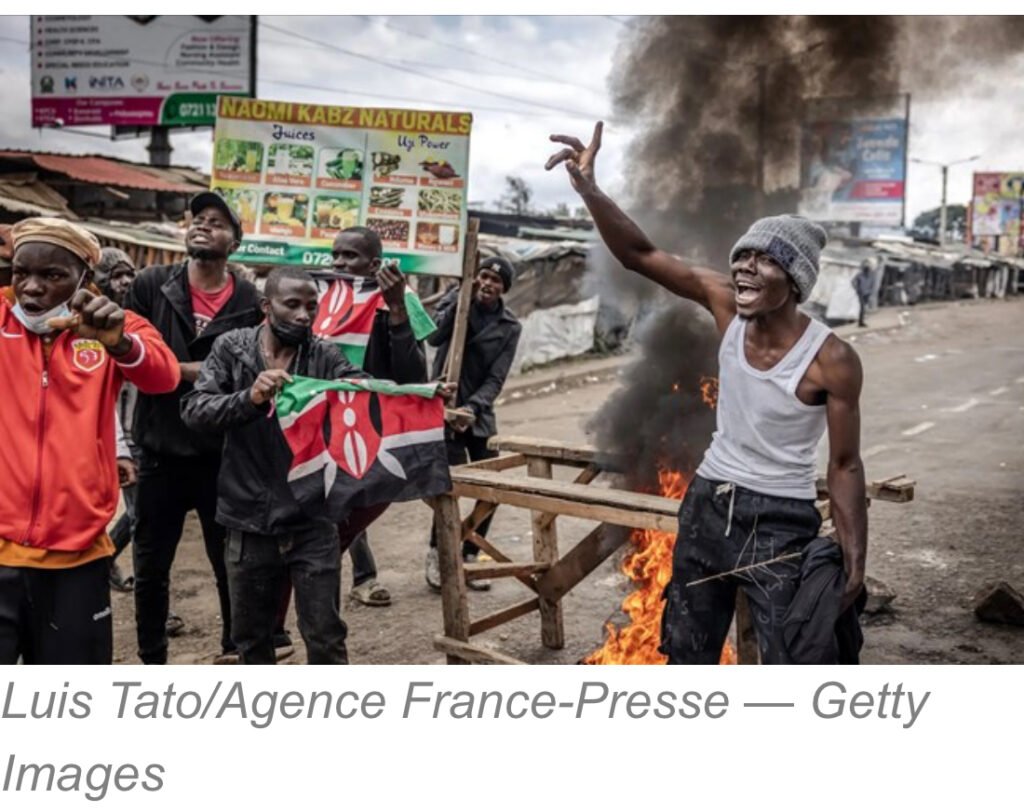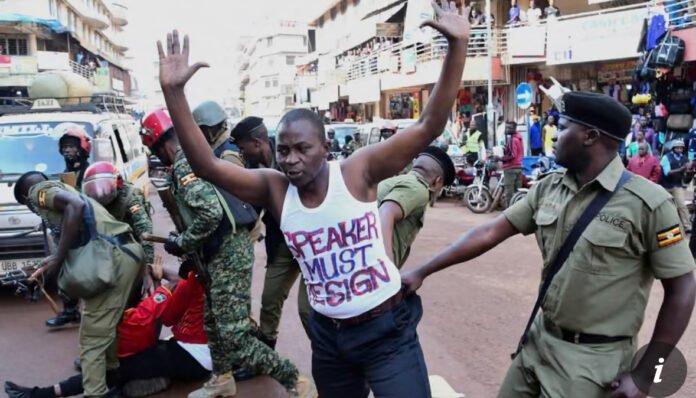By Horn Africa News Staff | Nairobi
Kenya — The death toll from ongoing anti-government protests in Kenya has surged to at least 31, according to multiple reports from human rights groups and hospital sources, marking one of the deadliest waves of civil unrest in the country in recent years.

For several weeks, thousands of Kenyan youth, activists, and concerned citizens have been staging mass demonstrations across major cities including Nairobi, Mombasa, Kisumu, and Eldoret. The protests, initially sparked by mounting frustration over the high cost of living and perceived government mismanagement, have grown into a nationwide movement calling for the resignation of President William Ruto.

At the heart of the unrest are accusations of widespread corruption, economic inequality, and aggressive police crackdowns. Demonstrators say they are fed up with what they describe as a “broken system” that disproportionately affects ordinary citizens while political elites remain untouched by the worsening crisis.
“We are tired of empty promises,” said Peter Odhiambo, a 24-year-old protester in Nairobi. “The cost of living is unbearable, jobs are scarce, and now, they are killing us for raising our voices.”
Human rights organizations have condemned the government’s response to the protests, accusing security forces of using excessive and lethal force against unarmed civilians. Several graphic videos circulating online show armed police firing live bullets and tear gas into crowds of demonstrators. Protesters have also reported arbitrary arrests, disappearances, and harassment.
Hospitals in Nairobi and other cities have been overwhelmed with injuries. Medical workers say many of the victims were young people shot at close range. “We are seeing gunshot wounds to the chest, abdomen, and limbs,” said a doctor at Kenyatta National Hospital, who asked not to be named for fear of reprisal.
President Ruto has so far refused to step down or acknowledge the scale of the violence. In a recent address, he blamed the unrest on “foreign interests” and accused opposition figures of exploiting the crisis for political gain.
Opposition leaders, including Raila Odinga, have expressed solidarity with the protesters and called for an immediate investigation into police actions and a national dialogue to address the country’s deepening political and economic crisis.
Meanwhile, anger continues to mount. Demonstrations have shown no signs of slowing down, with calls for a nationwide shutdown in the coming days. Many fear the situation could spiral further out of control unless urgent steps are taken to de-escalate tensions and hold security forces accountable.
Kenya, a regional economic hub and one of East Africa’s most stable democracies, now finds itself at a critical crossroads. The coming days will determine whether the government can regain the trust of its people — or whether the unrest will deepen into a more prolonged and volatile conflict.





